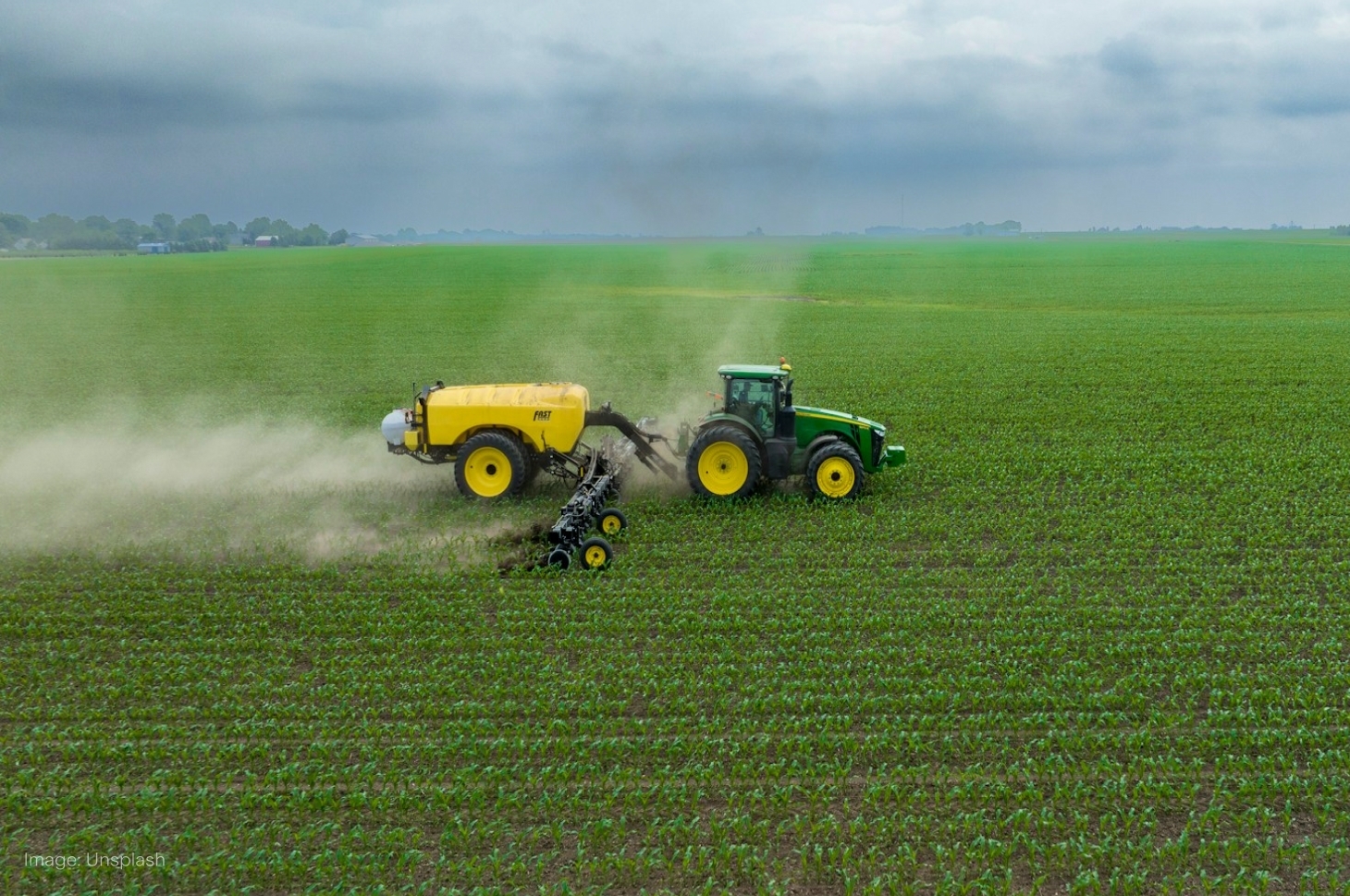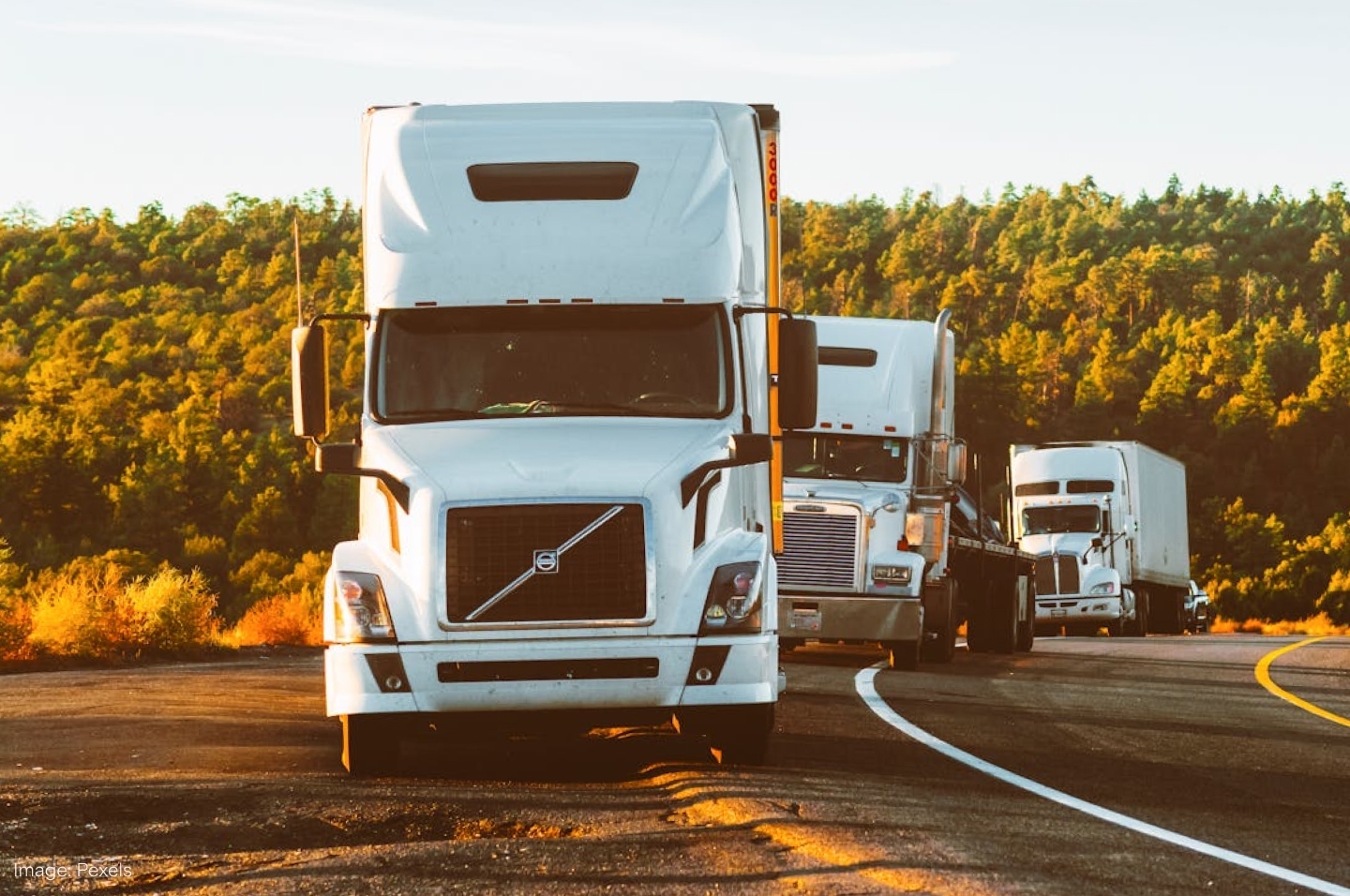
Crops
Fertilisers give plants that extra boost, but pressures to feed more mouths from limited farms put the industry under a few growing pains.
Increasing agricultural yields is vital as the world’s population rises: we need to produce more food from limited land. Unstable weather and more people moving to cities also add complications to securing our food supplies.
Fertilisers play a major role in boosting the productivity of farming, giving crops a bit of help to grow between sowing to harvesting. While some of these nutrients occur naturally in the soil, their levels can decline when the same fields are planted year after year.
Using fertilisers is an annual ritual, viewed by farmers as an investment that pays off over time. It’s part of how, for example, global cereal production grew 55.37% in the three decades to 2022, while its land use grew only 3.38%. Getting that bump from farm expansion alone would require an estimated 1.53 billion hectares of additional land.
The main ingredients in the fertiliser mix are phosphorus, which strengthens roots during development; potassium (potash) to increase resistance against disease and regulate water uptake; and nitrogen, for its role in processing proteins to enhance plant growth. There’s no magic formula – the exact inputs depend on soil conditions and the type of crop.
Phosphorus and potassium come from mineral deposits. Sanctions affect over 25% of global potash production, coming from Russia and Belarus. Canada accounts for around one third, with large projects operated by Nutrien ($NTR) and The Mosaic Company ($MOS), and BHP ($BHP) also set to enter the scene. Meanwhile, LFP batteries for EVs are looking for a share of the phosphate production.
Nitrogen in the air is first combined with natural gas to create ammonia, then turned into nitric acid that’s used in fertilisers. This means these products are highly exposed to natural gas prices. Producing one metric ton (t) of ammonia generates 1.9 to 2.6t of carbon dioxide.
Firms such as CF Industries ($CF) are now aiming to commercialise green ammonia, which uses hydrogen from water electrolysis and lacks emissions. However, fertiliser companies are likely to face competition for green and other low-carbon ammonia from other industries. It may take some time for suppliers to scale and be cost-effective.
There are other factors that also call for change. The overuse of some types of fertilisers can cause soil damage and pollute waterways. There’s research going into new technologies like using living bacteria, or microbes, instead of chemicals. On the machinery side, Deere & Company ($DE) claims its ExactShot can reduce initial fertiliser requirements by approximately 60% by spraying precisely on each seed during the planting process.
The fertiliser industry, like so many others, is in constant innovation. The stakes are high when the nourishment of humankind depends on it. Food for thought.

